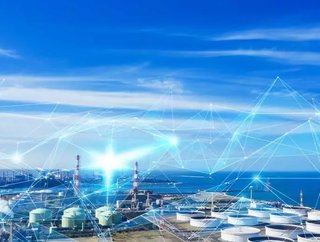Vodafone Business brings IoT and blockchain to energy sector

Vodafone Business has partnered with enterprise blockchain platform Energy Web to bring Io connectivity and blockchain to renewable and distributed energy
In a 26 May announcement, it was reported that Vodafone Business would partner with Energy Web to use innovative technologies that enable renewable and distributed energy assets to be integrated to the grid safely and efficiently.
Vodafone Business is a globally technology communications company that provides digital communications solutions for business covering IoT, cloud, hosting and more.
Under the new partnership it and Energy Web, a global nonprofit organisation focused on blockchain and other decentralised technologies, will combine SIM-centric blockchain technology with IoT connectivity to create secure IDs for energy assets.
This will increase security across a range of renewable and distributed energy assets including wind turbines, heat pumps and solar panels.
The technology works in a similar way to which telecoms operators securely identify mobile phones through their SIM cards.
For example, the partnership enable those responsible for the running of the grid to accurately identify and recognise distributed energy assets to which they are connected.
This ability is vital to ensure an effectively operated smart grid. It will be facilitated by the integration of Vodafone Business’ global IoT connectivity and the Energy Web Decentralized Operating System (EW-DOS).
The latter is an open-source strack of decentralised software and standards. It effectively becomes the grid’s “new digital DNA”, according to the organisation and is currently used by some of the world’s most recognisable energy companies.
Erik Brenneis, Vodafone Business IoT Director said: “As the number of decentralised, new-generation, low-carbon devices grows, so does the need for them to be securely connected regardless of their location.
He added that: “This connection needs to be simple and secure, ensuring assets are easily able to be connected to, and managed by, energy and communication networks around the globe.”
Energy Web’s CEO, Walter Kok added that “We are seeing the convergence of multiple sectors in making the energy transition happen - the energy sector, of course, but also automotive, telecoms, and even finance.”
Find out more about Vodafone Business here.
Find out more about Energy Web here.
- Tan Delta Technology Empowers the Sustainable Energy SectorRenewable Energy
- Debunking Silicon Carbide (SiC) Myths: The Real StoryTechnology & AI
- Terabase raises US$25m for energy project construction techTechnology & AI
- How can businesses reap the benefits of mobile technology?Technology & AI






